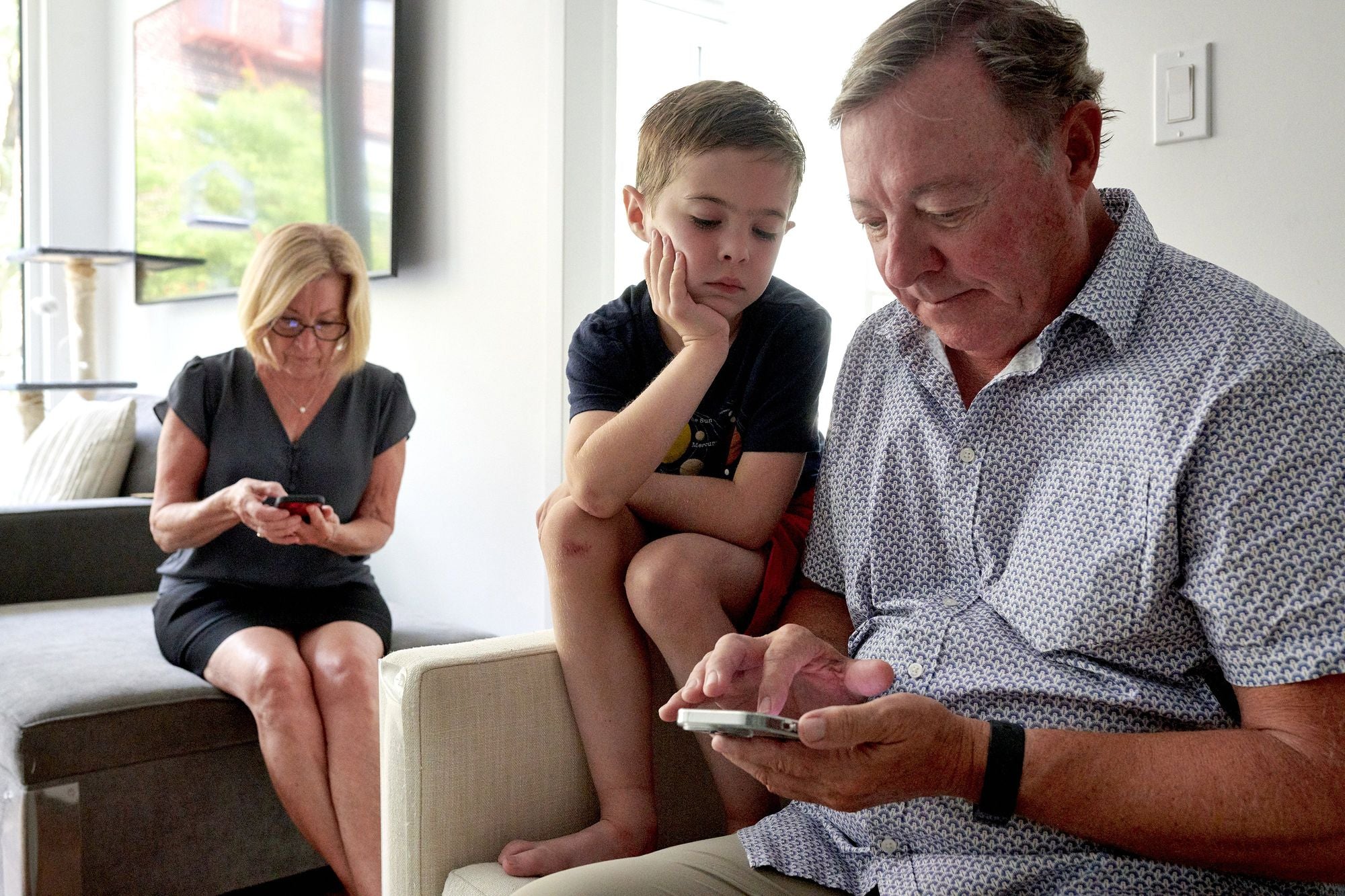We’re all a little guilty of being glued to our phones from time to time. Sometimes it’s just nice to have a moment to let your brain rest before going back to the busyness of your day.
There’s nothing wrong with taking a mental break, but problems start when tech usage gets in the way of family time, especially time with your kids.
When kids find themselves competing with smartphones to get their parents or grandparents attention it has disastrous effects on their mental health. With 50% of parents being asked to put their phone away by their own child, the problem is getting too big to ignore.
It’s not just the younger generations, grandparents are also becoming increasingly tech addicted. A recent Wall Street Journal article has highlighted concerns from parents that screens are getting in the way of family time with kids and their grandparents.

At Spacetalk, we want to help families keep in touch in a healthier way. No social media, no open internet access and no distractions makes us the simply safer way for your family to keep connected.
The good news is, the more aware we are of an issue, the better equipped we are to turn the situation around.
How your screen habits can affect kids
Causes emotional problems: If you find yourself paying more attention to your phone than your child, it’s likely having a negative effect on their emotions.
Screen addiction can make parents less in tune with their child’s mental and emotional needs, making it more likely they will lash out to try and get their parents attention.
This bad behaviour in turn prompts parents to get angry at their child, creating a vicious cycle: the child’s needs aren’t getting met so they act up for attention, this gets them in trouble causing them to feel sad, making them to act out again. How exhausting!
Affects self-esteem: Alarmingly, kids as young as 4 report feeling sad or angry about their parents technology use, stating they feel less important than their parents phone.
When repeated attempts to pull parents attention away from their phones fail, kids feel like they’re not doing enough to get noticed, further damaging their self-esteem.
Creates disengagement: When there’s a phone between a parent and their child, it creates a sense of disengagement.
Over time, this can make kids less willing to share things with their parent or guardian, whether it’s something that made them happy or a problem they’re having at school.
This is a dangerous situation, as kids might not approach you if they’re having a hard time, leading them to suffer in silence without support.
Increase likelihood of injury: I’m sure we’ve all glanced at out phone while taking the kids to the park. Unfortunately, not paying attention to kids while you’re out and about means you might not notice if they’re about to get into a situation where they could hurt themselves or others.
When you’re out with your kids, be present, enjoy the moment and see it as an opportunity to spend quality time watching your kids play.
Tips to limit your screen usage
The good thing is that this can all be turned around and improved upon with a few changes.
• Set aside dedicated times to check your notifications.
• Have a no phone at the dinner table rule.
• Pay full attention to your child when they’re talking to you.
• Don’t check work emails after hours.
• Try not to look at your phone at least an hour before bed.
• Have dedicated screen free time with your kids every day.
Alternatives to screen time during times of stress
• 60 seconds of mindful breathing can help refocus and can be done anywhere, even standing in line at the supermarket.
• If you feel the urge to pick up your phone and start scrolling, replace it with something that will give a sense of accomplishment like folding the laundry or watering the indoor plants.
• Brain dump journaling is a great way to clear your mind. Spend a couple of minutes writing down every worry that comes to mind. Don’t make it perfect, just get it out of your head and onto the page, then rip it up.
• A mindful walk can help get out of your head and into the real world for some much-needed mental clarity. Focus on the birds, and the colours of any flowers you see.
By noticing when we’re favouring our phones over our children, we can start working towards reversing some of the damage being done not only to our children, but to ourselves.
Cover photo credit: Gabby Jones, Wall Street Journal

Share:
Feature Focus: SOS Alerts
What Parents Need to Know About Online Games